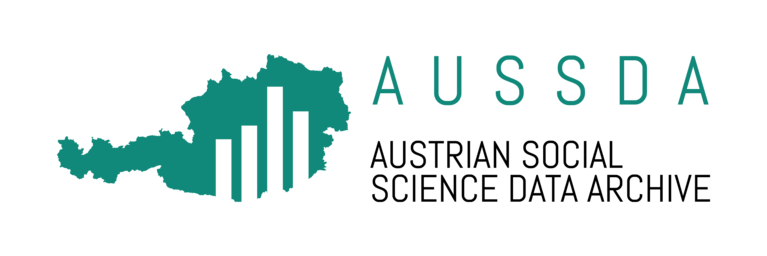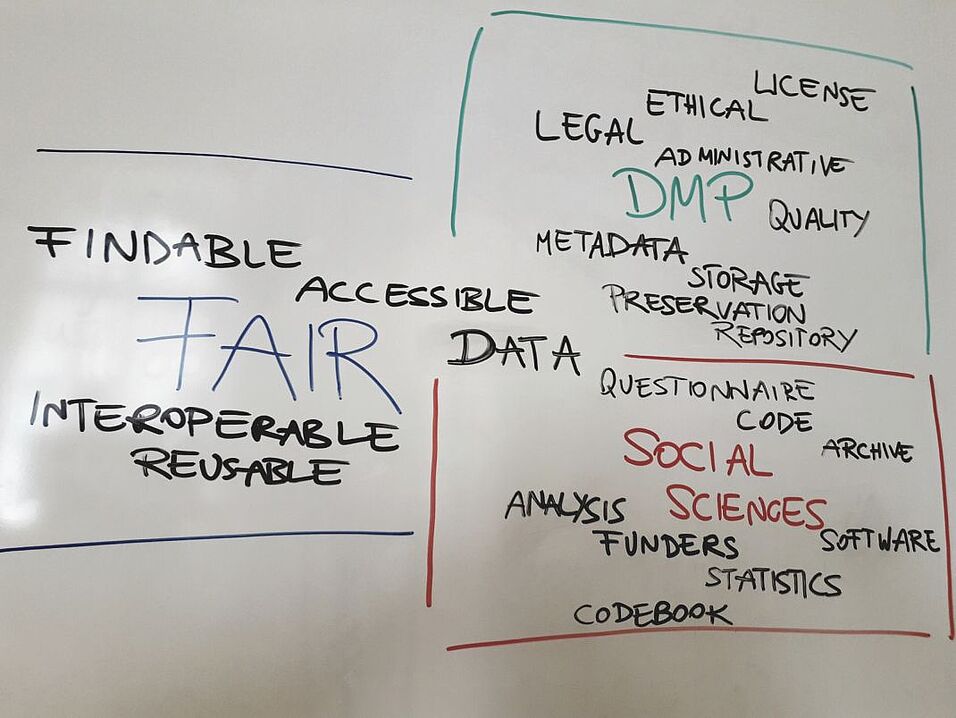- Download: https://doi.org/10.5281/zenodo.1291816
- Citation: Heider, Veronika, Raffetseder, Lena, Sanchez Solis, Barbara, & Ulrich, Xenia. (2018). DMP Template for the Social Sciences (Version 1.0). Zenodo.
- License: CC BY 4.0
DMPs provide a basic description of what kind of data will be produced and collected, and details about what will happen to the data both during a project and after it has been completed. This includes statements about the provenance of data, contextual information surrounding the data collection process, how data are conceptually related to data sets produced by similar studies, the infrastructures used to store and manage data, as well as information regarding the publication, citation, long-term access and, if necessary, destruction of data when the research lifecycle is complete.
What's special about the social sciences?
Humanities and social sciences data are unique in that they often consist of private information contributed by individual study participants, thus various questions regarding data protection, copyright attribution, exploitation rights, and licensing are addressed in this template. A set of questions guides the data creators to consider legal or ethical barriers to sharing data, data ownership, planned license for reuse or replication, any restrictions on data reuse or replication. This also includes the permission to collect data (informed consent) as well as permission for third-party data used in research. It might be necessary to anonymize or pseudonymize your data or even to think about processes in case of breaches. And since a DMP is all about planning ahead, you might include additional resources for clarifying all these legal questions.
What about open and FAIR data?
The template is compliant with the FAIR principles to improve the findability, accessibility, interoperability, and reuse of the data. This implies that research data and contextual tools like software should be stored and made available for use in a suitable repository or archiving system and data should be provided with persistent identifiers. So, when you plan your project, provide information on how and when data will be released and made accessible for further reuse. Include information on the repository and/or archiving system you would like to use and make sure to check on possible archiving costs. In order to improve findability and re-use of your data, consider unified metadata standards, machine-readability of licences, optimal search keywords, data discovery strategies and open software applications. Be aware that data meant to be re-used is not only the dataset itself, but also metadata and related records. Thus, don't forget to include and give access to methods reports, instruments of data collection (e.g. questionnaire, code), codebook, program code for data processing and analysis.
At AUSSDA, we have experts who can provide assistance in the creation of DMPs. They know the requirements of various national and international funders and can help with suitable templates and suggestions. Please just send a message to info@aussda.at for more information.
Acknowledgement: This template was developed in the project e-infrastructures Austria Plus, created by AUSSDA – The Austrian Social Science Data Archive and WU Vienna University of Economics and Business.


